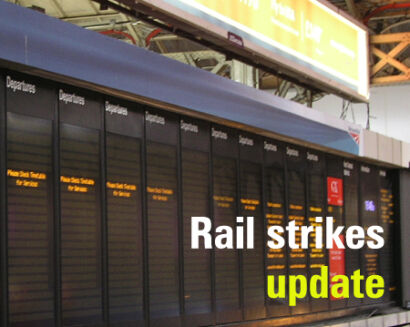The RMT has declared two 24-hour strikes this month, one of which will coincide with action at 12 operators by ASLEF drivers.
The new dates on which around 40,000 RMT members will strike are 15 and 17 September, and there will be additional walkouts in separate disputes at Hull Trains and London Overground operator Arriva Rail London on the 15th, which is when ASLEF drivers will also be on strike.
TSSA has already announced a 24-hour strike by its members in clerical and management jobs from midday on 26 September.
RMT general secretary Mick Lynch said: ‘Our members have no choice but to continue this strike action. Network Rail and the train operating companies have shown little interest this past few weeks in offering our members anything new in order for us to be able to come to a negotiated settlement.
‘Grant Shapps continues his dereliction of duty by staying in his bunker and shackling the rail industry from making a deal with us. We will continue to negotiate in good faith, but the employers and government need to understand our industrial campaign will continue for as long as it takes.‘
The Rail Delivery Group’s chair Steve Montgomery responded: ‘These strikes are cynically timed to cause maximum disruption to the very passengers the industry depends on for its recovery. From those left out of pocket because they can’t get to work, to people missing vital appointments and thousands of children and young people who depend on the train to get to school, the union leadership’s actions have very real consequences.
‘We absolutely want to give our people a pay rise and we know they are facing a squeeze – but the RMT must recognise that with revenue consistently at 20 per cent below pre-Covid levels, the only solution lies in long-overdue reforms that will put the industry on a sustainable footing and improve services for passengers.’
Although ScotRail and Transport for Wales will not be involved in the strikes, Network Rail signallers will be joining the stoppage on 15 September in those countries as well, bringing virtually all trains to a halt. On previous occasions, freight operators ran only the most essential services on strike days.


